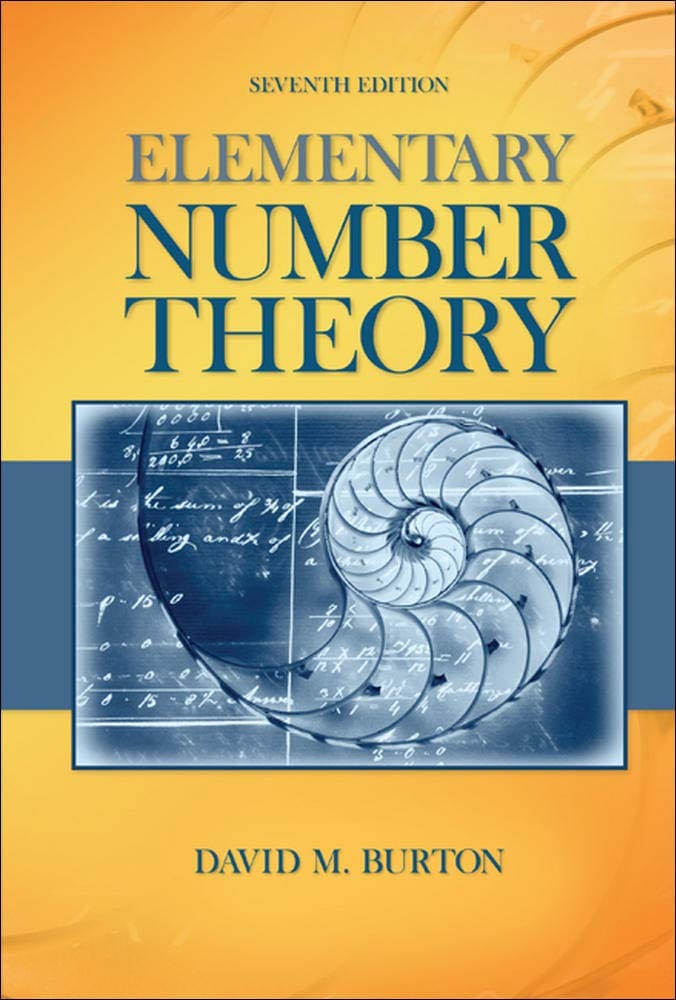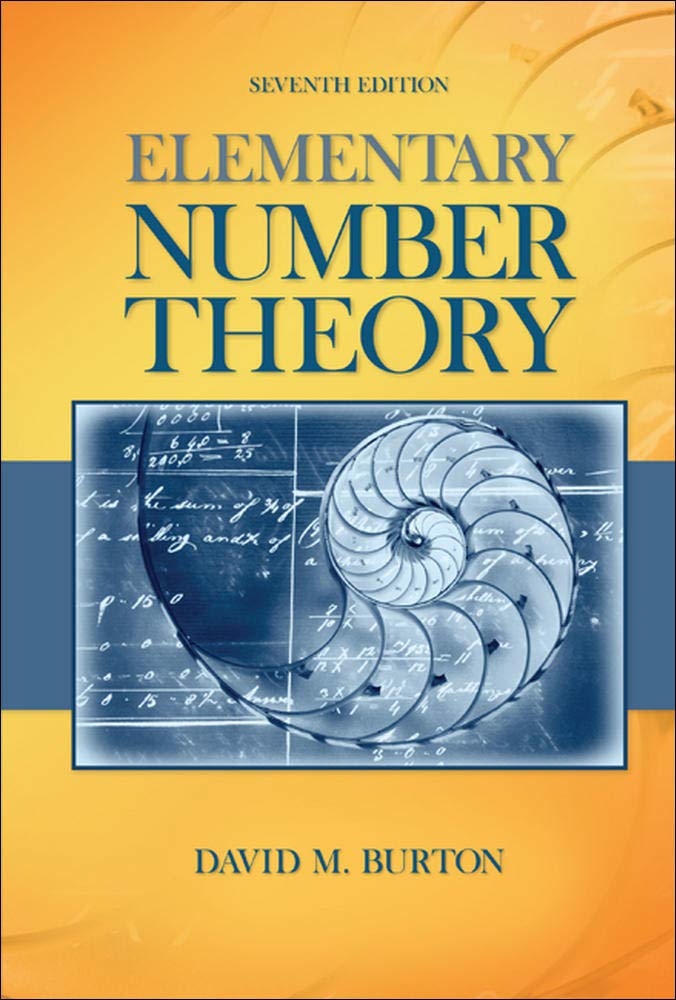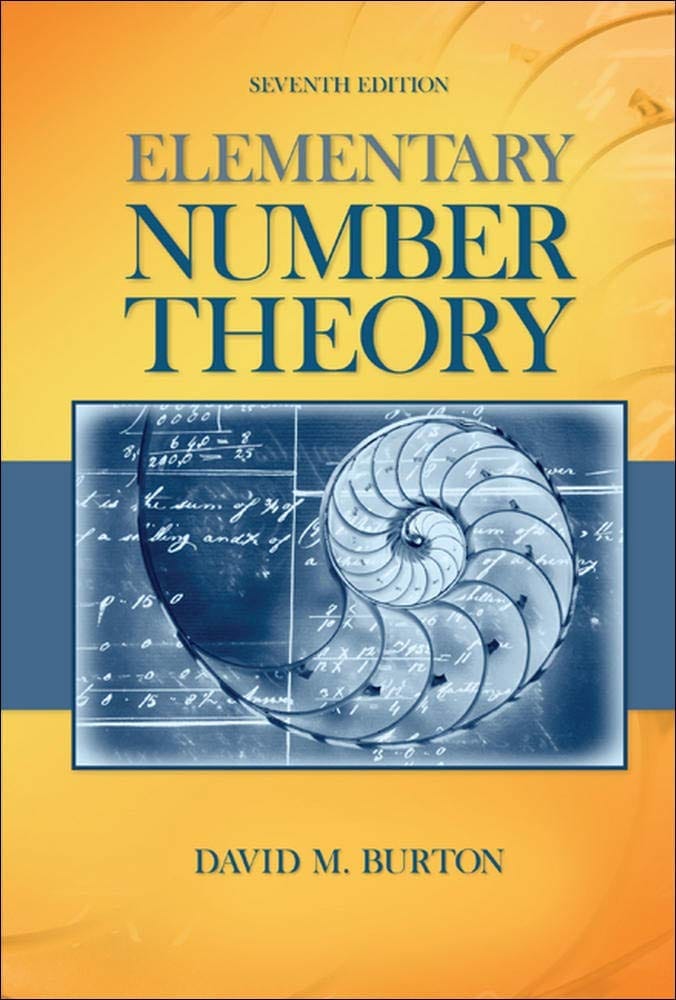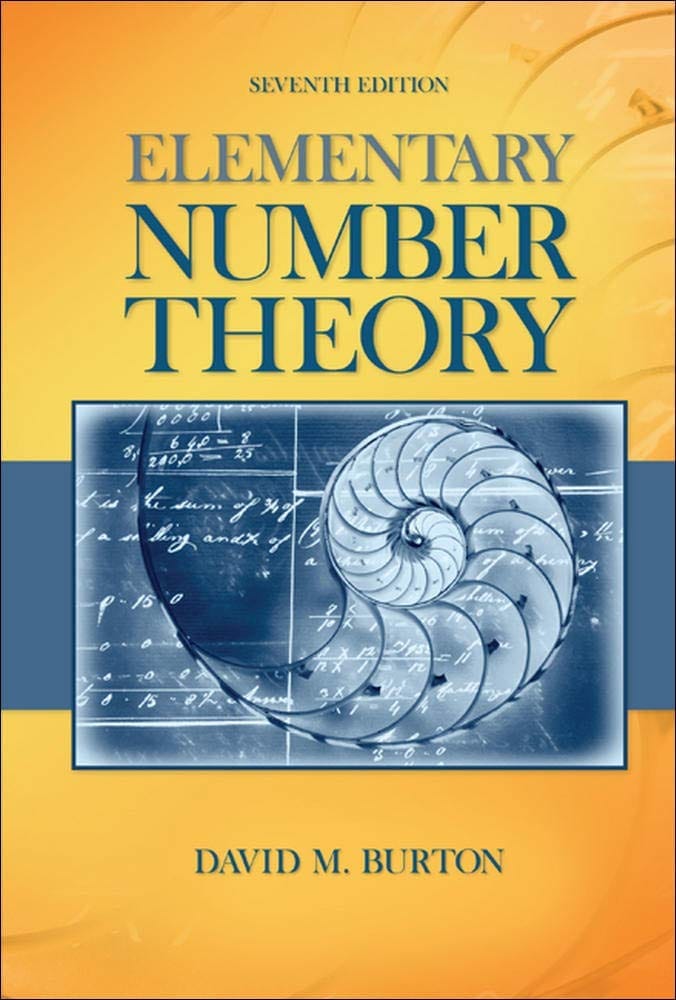
Elementary Number Theory Problems 4.2 Solution (David M. Burton's 7th Edition) - Q4
My Solution for "(a) Find the remainders when $2^{50}$ and $41^{65}$ are divided by $7$. (b) What is the remainder when the following sum is divided by $4$? $$1^5 + 2^5 + 3^5 + \cdots + 99^5 + 100^5$$"
Table of Contents
Background
All theorems, corollaries, and definitions listed in the book's order:

I will only use theorems or facts that are proved before this question. So you will not see that I quote theorems or facts from the later chapters.
Question
(a) Find the remainders when $2^{50}$ and $41^{65}$ are divided by $7$.
(b) What is the remainder when the following sum is divided by $4$? $$1^5 + 2^5 + 3^5 + \cdots + 99^5 + 100^5$$
Solution
(a)
For $2^{50}$:
We first know $2^{3} \equiv 1 \pmod 7$. Then, we have:
$$ \begin{equation} \begin{split} 2^{50} & \equiv (2^{3})^{16} \cdot 2^{2} \\ & \equiv 2^{2} \\ & \equiv 4 \pmod 7 \\ \end{split} \nonumber \end{equation} $$For $41^{65}$:
$$ \begin{equation} \begin{split} 41^{65} & \equiv (-1)^{65} \\ & \equiv -1 \\ & \equiv 6 \pmod 7 \end{split} \nonumber \end{equation} $$(b)
By observation, $1^5 + 2^5 + 3^5 + 4^5 \equiv 5^5 + 6^5 + 7^5 + 8^5 \equiv 9^5 + 10^5 + 11^5 + 12^5 \equiv ... \pmod 4$
We then only need to calculate $1^5 + 2^5 + 3^5 + 4^5 \pmod 4$ and times $25$. Thus $1^5 + 2^5 + 3^5 + 4^5 \equiv 1 + 4 \times 2^{3} + 9 \times 27 + 0 \equiv 1 + 0 + 1 \times 3 \equiv 0 \pmod 4$, which implies $0 \times 25 \equiv 0 \pmod 4$.
Read More: All My Solutions for This Book
Related Pages
Ranblog Newsletter
Join the newsletter to receive the latest updates in your inbox.


